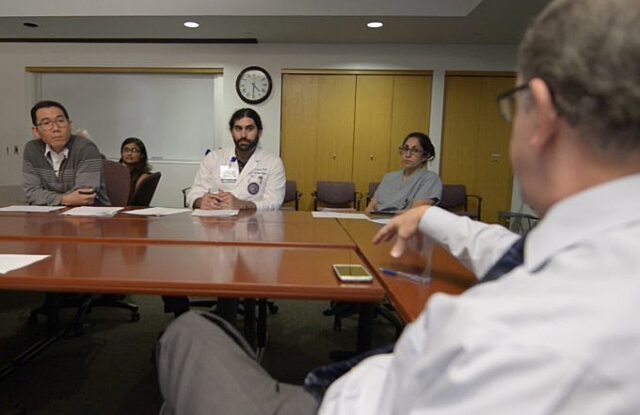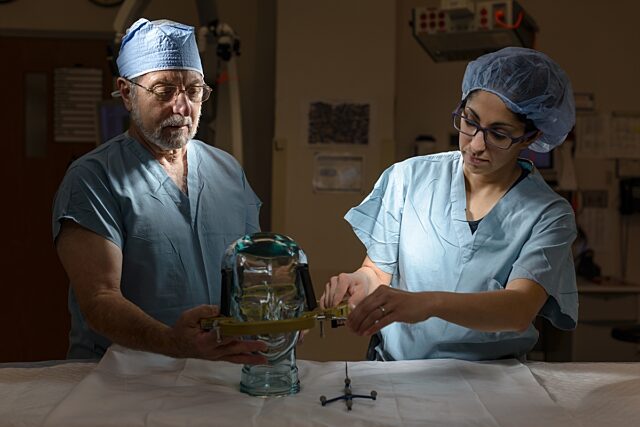Chemotherapy
The adult medical neuro-oncology team at the Preston A. Wells Jr. Center for Brain Tumor Therapy is lead by David Tran, MD, PhD. He is nationally known for his research with chemotherapy and laser interstitial therapy targeted at malignant brain tumors.
Chemotherapy Clinical Trials
MK-3475 in Combination With MRI-guided Laser Ablation in Recurrent Malignant Gliomas
CONTACT:
Sonisha A. Warren, PhD
Phone:352.294.8737
Email: sonisha.warren@neurosurgery.ufl.edu
What is chemotherapy?
According to the American Cancer Society, chemotherapy (chemo) usually refers to the use of medicines or drugs to treat cancer. The thought of having chemotherapy frightens many people. But knowing what chemotherapy is, how it works, and what to expect can often help calm your fears. It can also give you a better sense of control over your cancer treatment.
Surgery and radiation therapy remove, kill, or damage cancer cells in a certain area, but chemo can work throughout the whole body. This means chemo can kill cancer cells that have spread (metastasized) to parts of the body far away from the original (primary) tumor.
Our team of neuro-oncologists and specialized physicians will work with you to decide what drug or combination of drugs you will need. We will determine the doses, what forms and how long the treatments will last. All of these decisions are based on the type of cancer, where it is, how big it is, and how it affects your normal body functions and overall health.
Cancer can be treated with a single chemo drug, but often several drugs are used in a certain order or in certain combinations (called combination chemotherapy). Different drugs that work in different ways can work together to kill more cancer cells. This can also help lower the chance that the cancer may become resistant to any one chemo drug.
Penetrating the blood brain barrier
The human brain has a remarkable defense system that filters bacteria and chemicals. For brain tumor patients, the barrier works almost too well by blocking most chemotherapy drugs.
At UF Health, Dr. Tran and his team have found that a laser system already used to kill brain tumors has another benefit: It opens a temporary "window" in the blood-brain barrier that enables crucial chemotherapy drugs to pass into the brain for up to six weeks. The discovery raises the possibility that a host of chemotherapy drugs once rendered ineffective by the blood-brain barrier could now be used against glioblastoma, which is the most common malignant brain tumor found in adults.
Recent research shows that the blood-brain barrier can be temporarily disrupted at tumor sites. This disruption provides a precise location and a longer "window of opportunity" for chemotherapy drugs to enter the tumor and take effect. The blood-brain barrier opens soon after a procedure known as MRI-guided laser ablation. Using a probe no larger than a pencil, physicians use the laser to heat and kill tumors. A beneficial side effect is that the laser beam creates the perfect temperature around the tumor — just warm enough to disrupt the blood-brain barrier but not so hot that neurons die.
Ablation enhances immunotherapy
Opening the blood-brain barrier also raises the possibility that immunological techniques can be used more effectively against brain tumors. A leaky barrier allows the tumor to be recognized more readily by the immune system and provides immune cells better access to the tumor. Early research is showing that laser ablation could enable the body’s immune system to attack the tumor. However, cancer cells sometimes find ways to dodge the body’s immune system. Combining laser ablation technology with certain drugs that prevent tumor cells from evading the immune system could greatly enhance immunotherapy.
Call (352) 273-6990 for a medical evaluation.

